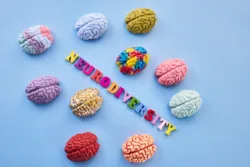Domestic Violence: Effects on Mental Health and Overall Wellbeing
People have differing perspectives and levels of awareness on the effects of domestic violence on family. Some may feel that abuse in the home is a rare incident, normally depicted in the media as shouting matches and throwing things around the house. Others may have first hand experience of witnessing or being the victim of domestic violence themselves.
Regardless of where you come from and your knowledge or personal interaction with domestic violence, there are some important facts to consider. If you’re a parent, a survivor of domestic violence, a mental health care worker, a school administrator, coach or family member of a victim, here’s what you’ll want to know regarding the effects of domestic violence on children.
Domestic violence
According to the United States Department of Justice, domestic violence is defined as a pattern of behavior in a relationship when one person uses against another to gain power or control. It can include manipulation, coercion or force and the violence can be physical, sexual, spiritual, financial or psychological.
Domestic violence most often occurs between parents, partners, ex-spouses, roommates and so forth. Domestic violence is sometimes used to describe abuse in a household, meaning that the violent or frightening behavior is also directed towards children.
Rates of domestic violence
Estimates regarding the number of children who witness domestic violence are difficult to provide due to the private nature of the subject. Moreover, many people still perceive domestic violence to only include physical harm, rather than emotional. Regardless, the Research Center on Child Protection and Custody states that between 10 and 20 percent of children are exposed to domestic violence each year.
Effects of domestic violence on children
There’s no doubt that domestic violence affects children for a lifetime. Here are a few of the most devastating effects of domestic violence on children.
Physical health
It is common for children who witness domestic violence to experience negative repercussions of domestic violence. Accidental injury is one of the leading causes of death among young children, and the risk of this type of incident increases when violence is common in the home.
Young children who experience distress from an abusive home often manifest symptoms as headaches, stomachaches and other somatic complaints in response to witnessing violence, too.
Substance use
Children in homes where domestic violence is present are more likely to be exposed to substance use at an early age and struggle with an addiction at some point in life. The overwhelming stress and lack of control children in these situations feel makes the escape of substance use seem appealing, despite drastic repercussions down the line.
Relationship patterns
Sadly, abusive patterns are generational. Someone who witnesses abuse as a child is more likely to fall into an abusive partnership or become an abuser. When a child sees that violence is how adults relate and address problems, this pattern can become ingrained. Witnessing domestic violence doesn’t guarantee a continued pattern, but it is a strong indicator.
Increased anxiety
A child who experiences the cycle of violence within his or her home is likely to face anxiety as tension builds. The anxiety may carry over into other areas of life. An unstable or unsafe home life is a breeding ground for negative self-worth, poor cognitive distortions and lifelong struggles with excessive worry.
Post-traumatic stress disorder
When children struggle to manage the effects of trauma, post-traumatic stress disorder (PTSD) is a common occurrence. PTSD is a severe mental health condition associated with:
- Intrusive memories
- Avoidance of triggering people or events
- Depression
- Hopelessness
- Guardedness
- Trouble maintaining relationships
PTSD is one of the most common after effects of domestic violence, typically within those who fall victim, but the ripple effects can be felt throughout the family.
Depression
Children who live in unstable home environments are also more susceptible to depression, both as a child and later on in adulthood. Depression may result from poor coping skills learned in early life, or as a result of less favorable outcomes that stem from being the child of an abuser, such as unemployment or relationship issues.
Academics
Children who experience domestic violence in the home are predisposed to have a lower academic performance than their peers. Children and teens may drop out of extracurricular activities, skip class, fail a grade or drop out of school completely. Those who witness abuse are also more likely to be involved in crime as well.
Domestic violence effects on mental health and overall wellbeing
Domestic violence doesn’t just hurt the partner being abused. It affects the whole family and community. The ripple effects of aggressive, manipulative or fear-provoking behavior can cause a lifetime of challenges for the victims and those who witness this inhumane behavior.
The good news is that there is hope. If you or someone you know has been trapped in an abusive relationship or home situation, breaking free and finding safety is possible. Even years after the abuser is present, you can still find healing.
High Focus Centers PA is here for you. Non-judgmental and compassionate staff will assess your needs and provide care that meets you where you’re at. Undo the effects of domestic violence on family and get treatment by calling High Focus Centers PA now.
In This Blog...
Related Posts

Teen Mental Health & Substance Use: Summer Risks Every Parent Should Know

How Aromatherapy Supports Mental Health and Substance Use Recovery

Understanding Oppositional Defiant Disorder in Adolescents and Treatment Approaches at High Focus Centers Pennsylvania

Embracing Neurodiversity: How Specialized IOP Programs Support Teens in Radnor, PA




